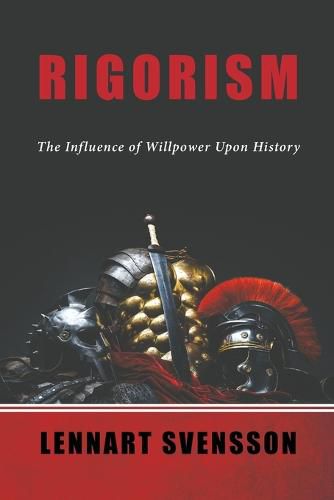Readings Newsletter
Become a Readings Member to make your shopping experience even easier.
Sign in or sign up for free!
You’re not far away from qualifying for FREE standard shipping within Australia
You’ve qualified for FREE standard shipping within Australia
The cart is loading…






This title is printed to order. This book may have been self-published. If so, we cannot guarantee the quality of the content. In the main most books will have gone through the editing process however some may not. We therefore suggest that you be aware of this before ordering this book. If in doubt check either the author or publisher’s details as we are unable to accept any returns unless they are faulty. Please contact us if you have any questions.
In Rigorism: The Influence of Willpower Upon History, Lennart Svensson presents a unique interpretation of rigor that allows us to examine some of the gray areas in history. Svensson’s concept of rigorism is derived from the Latin word rigor, which means hardness and discipline. This theory covers instances of willpower in history, such as acting decisively in a crisis and demonstrating responsibility with authority. It is an area of history that has been largely ignored until now, even though all historical figures have to rely on their willpower in times of crisis.
Rigorism: The Influence of Willpower Upon History examines regimes in Sparta, Macedonia, the Diadochi, the late Republic, and Imperial Rome. This is followed by studies of Faustian Era figures like Napoleon, Boulanger, and de Gaulle.
In addition, Svensson also presents other historical topics, such as cycles of war, the artistic interests of rulers, the role of temples, heroes of aviation, the Shogan, and Kautilya’s Arthashastra.
$9.00 standard shipping within Australia
FREE standard shipping within Australia for orders over $100.00
Express & International shipping calculated at checkout
This title is printed to order. This book may have been self-published. If so, we cannot guarantee the quality of the content. In the main most books will have gone through the editing process however some may not. We therefore suggest that you be aware of this before ordering this book. If in doubt check either the author or publisher’s details as we are unable to accept any returns unless they are faulty. Please contact us if you have any questions.
In Rigorism: The Influence of Willpower Upon History, Lennart Svensson presents a unique interpretation of rigor that allows us to examine some of the gray areas in history. Svensson’s concept of rigorism is derived from the Latin word rigor, which means hardness and discipline. This theory covers instances of willpower in history, such as acting decisively in a crisis and demonstrating responsibility with authority. It is an area of history that has been largely ignored until now, even though all historical figures have to rely on their willpower in times of crisis.
Rigorism: The Influence of Willpower Upon History examines regimes in Sparta, Macedonia, the Diadochi, the late Republic, and Imperial Rome. This is followed by studies of Faustian Era figures like Napoleon, Boulanger, and de Gaulle.
In addition, Svensson also presents other historical topics, such as cycles of war, the artistic interests of rulers, the role of temples, heroes of aviation, the Shogan, and Kautilya’s Arthashastra.